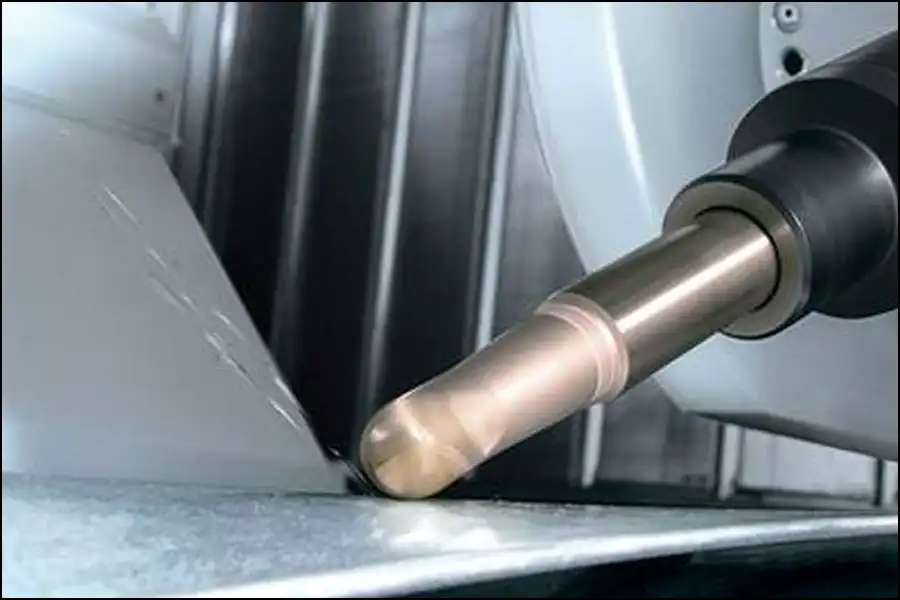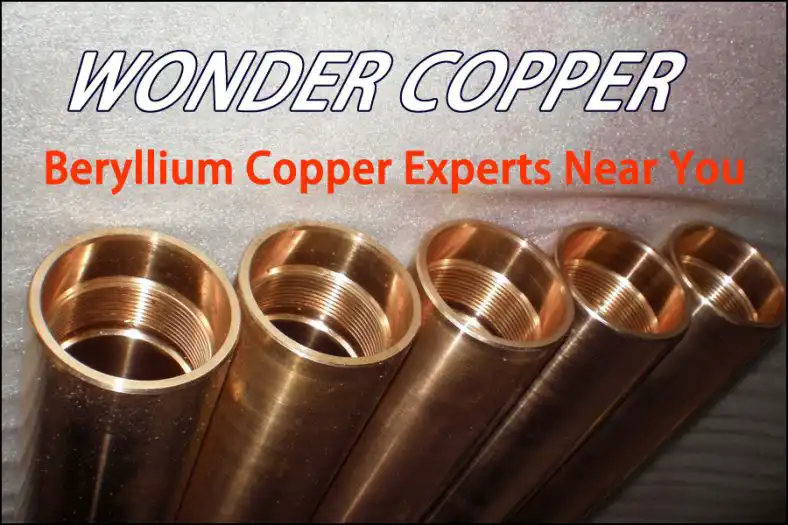Beryllium Copper Sleeves/Shafts
Wonder copper maintains an expert level of high-quality tooling for all made to spec industrial beryllium copper shafts / sleeves machining projects.
Wonder copper is capable of producing & machining beryllium copper sleeves, shot sleeves, shaft sleeves, shaft sleeves, coupling and the other sleeves according to Customer’s drawing or available samples.
Beryllium Copper Rings Available products
Tips forms supplied are from rings, discs, square and rectangular sections, further machined to exact dimensions as well as customers’ required specification.
Sleeves/Shafts Typical application
Wonder copper advantage:
Wonder Copper Shaft Case Studies
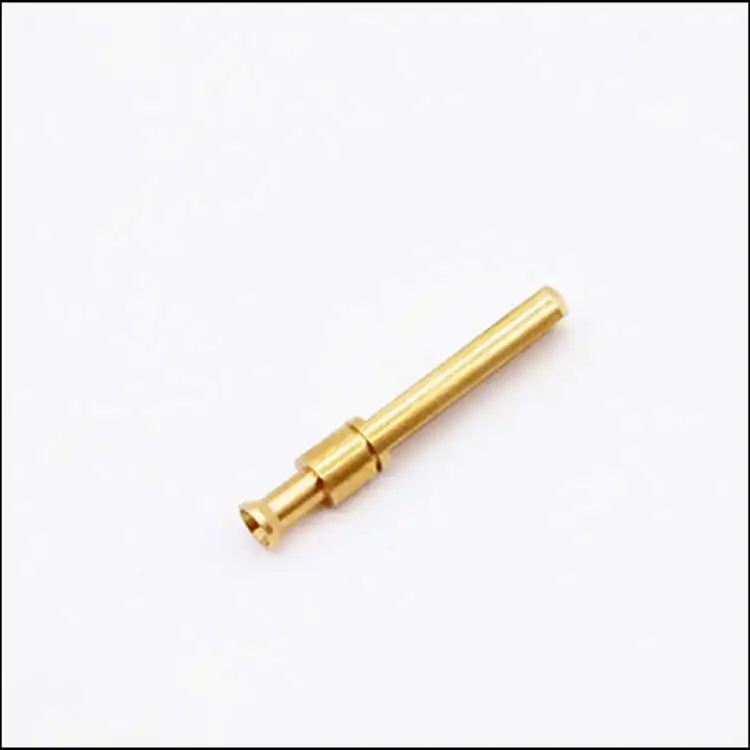
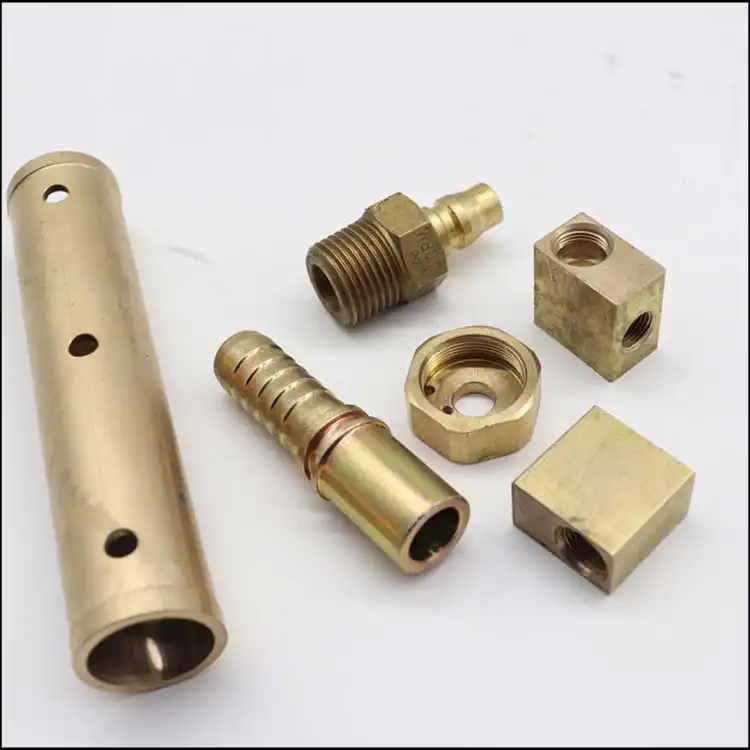
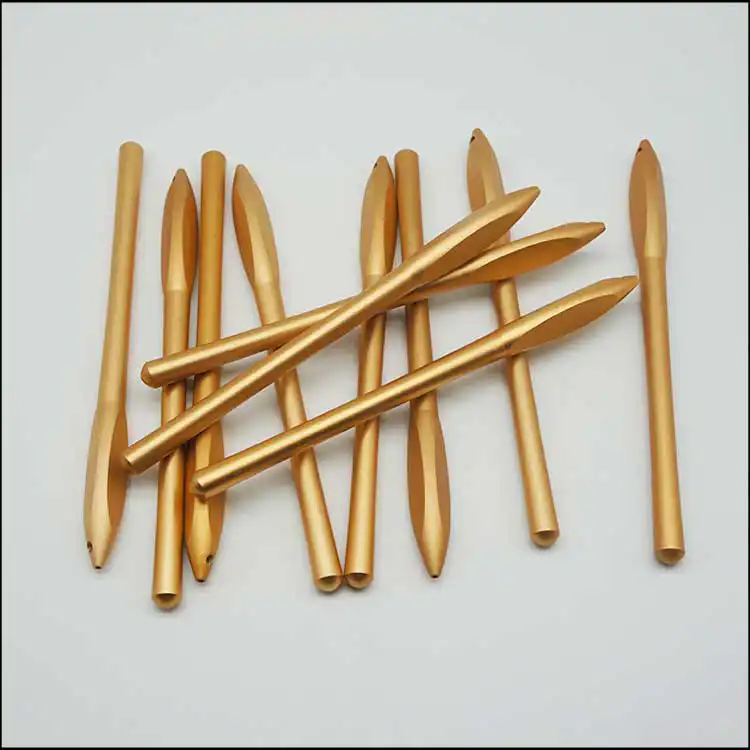
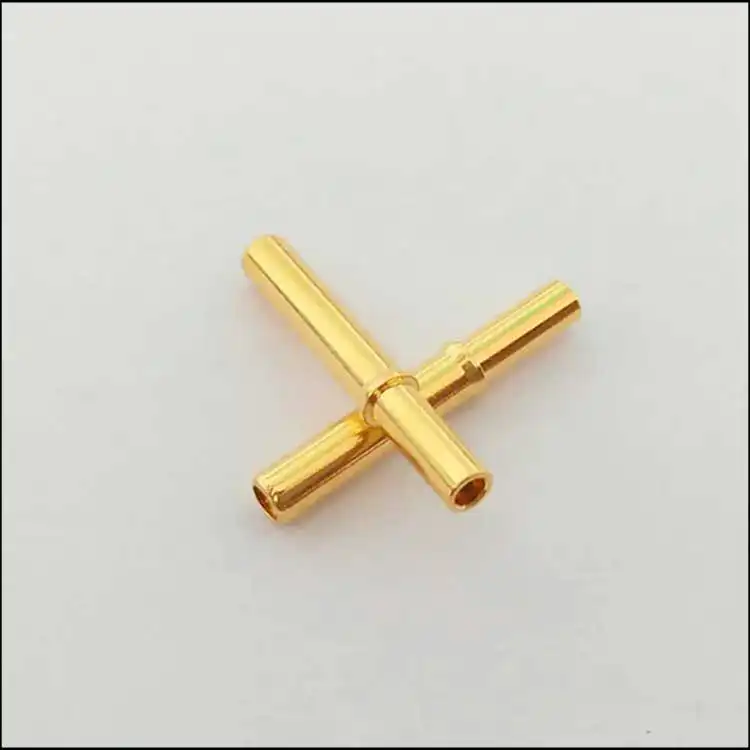
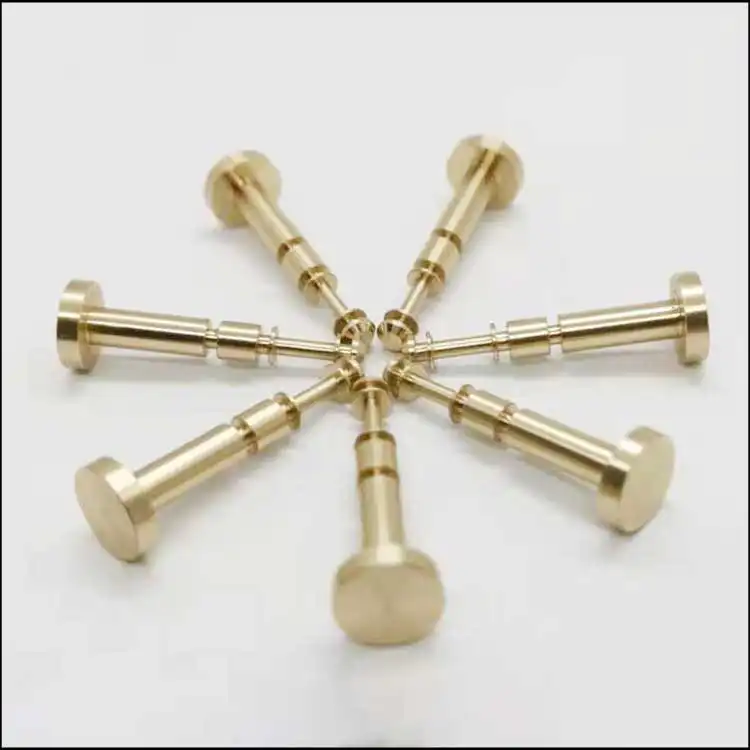


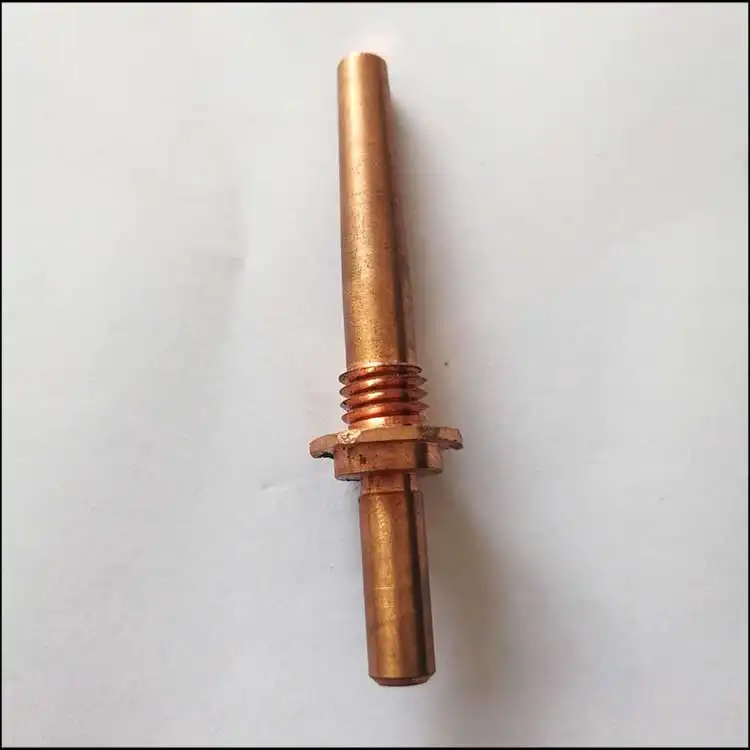
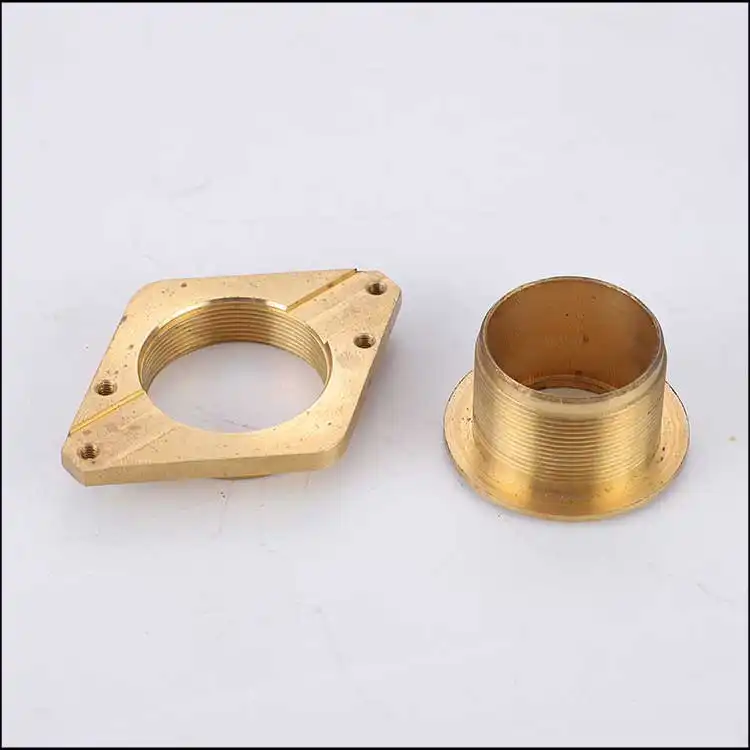
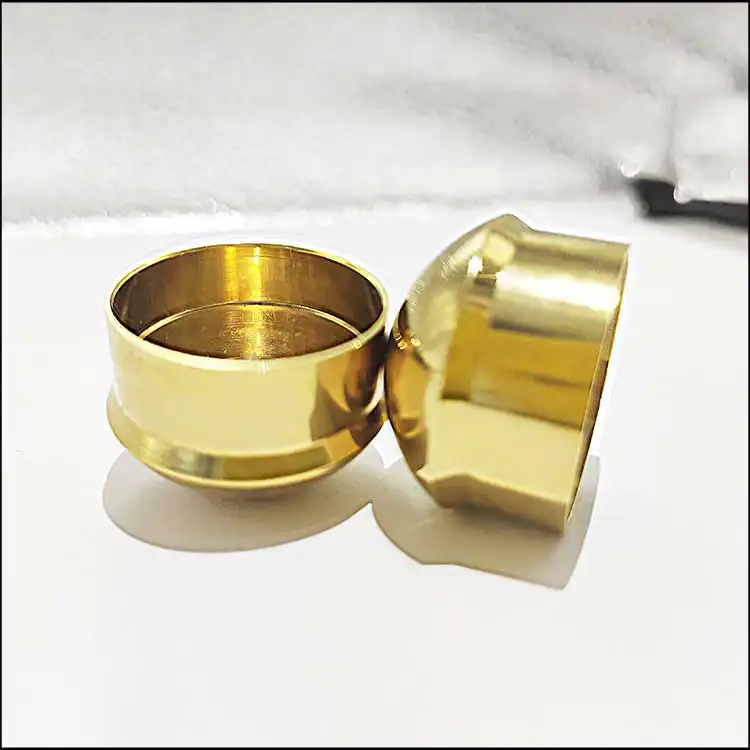
Chemical Composition
Executive standard:ASTM/GB/T5233-2001/EN12163(%max., unless shown as range or min.)
| Numbering | Be | Co+Ni | Cu | Fe | Pb | Si | Al |
|---|---|---|---|---|---|---|---|
| C17200 | 1.8-2.0 | Co+Ni≥0.2 | Margin | 0.15 | - | 0.15 | 0.15 |
| C17300 | 1.8-2.0 | Co+Ni≥0.2 | Margin | 0.15 | 0.2-0.6 | 0.15 | 0.15 |
| C17500 | 0.4-0.7 | Co 2.4-2.7 | Margin | 0.15 | - | 0.15 | 0.15 |
| C17510 | 0.2-0.6 | Co≤0.3,Ni 1.4-2.2 | Margin | 0.15 | - | 0.15 | 0.15 |
| QBe2.0 | 1.8-2.1 | Ni 0.2-0.5 | Margin | 0.15 | 0.005 | 0.15 | 0.15 |
| BeCo1Ni1 | 0.4-0.7 | Co 0.8-1.3,Ni 0.8-1.3 | Margin | 0.02 | - | 0.02 | 0.04 |
Mechanical properties and conductivity analysis
(AT/TF00)
| Numbering | Tensile Strength/MPa | Yield Strength/MPa | Elongation% | Hardness | Conductivity%IACS |
|---|---|---|---|---|---|
| C17200 | 1160-1380 | 980-1240 | 3-15 | 36-42HRC | 22-28 |
| C17300 | 1160-1380 | 980-1240 | 3-15 | 36-42HRC | 22-28 |
| C17500 | 700-920 | 560-710 | 10-25 | 92-100HRB | 45-60 |
| C17510 | 700-920 | 560-710 | 10-25 | 92-100HRB | 45-60 |
| QBe2.0 | 1160-1380 | 980-1240 | 3-15 | 36-42HRC | 18-20 |
| BeCo1Ni1 | 700-920 | 560-710 | 10-25 | 92-100HRB | 45-60 |
Available Status
| Brush Name | ASTM Name | Description |
|---|---|---|
| A | TB00 | Solution annealing state (quenched state) |
| ½H | TD01 | Quarter hard |
| ½H | TD02 | Half hard (semi-hard) |
| ¾H | TD03 | Three-quarters hard |
| H | TD04 | Hard state (full hard) |
| AT | TF00 | Standard aging heat treatment in quenched state |
| ¼HT | TH01 | Quarter hard standard aging heat treatment |
| ½HT | TH02 | Half-hard standard aging heat treatment |
| ¾HT | TH03 | Three-quarters hard standard aging heat treatment |
| HT | TH04 | Hard standard aging heat treatment (a process of comprehensive strengthening of deformation and aging) |
Note: In the Brush name:
- "A" represents the state of solution annealing (annealed, the alloy is in the softest state, easy to be stamped and formed, and needs to be cold worked or strengthened during the direct failure period);
- "H" stands for cold processing state (hard);
- "T" means that the material has been aging hardened by standard heat treatment (heat treatment means the state of aging strengthening heat treatment).

